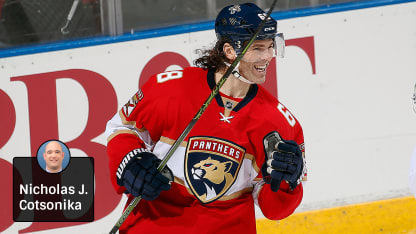"When he came into Pittsburgh, he dazzled us with his power and his skill and his overall game, and later on in his career, he's kind of inspired us with his passion and dedication," Messier said. "He's played long enough in my mind to really understand the significance of what the game means to him as a person and a player. The only way you can play and do what he's doing now is to make sure you're putting in the time with your conditioning and take care of yourself and really have a deep passion for the game."
Wondering what Jagr's numbers would be had he never left the NHL misses the point.
The NHL leaderboard is skewed by all kinds of things: time in other leagues, health problems, labor battles. Where would, say, Howe and Bobby Hull be had they stayed in the NHL and not played so long in the World Hockey Association? Where would, say, Lemieux and Bobby Orr be had they stayed healthy? Where would so many, including Jagr, be if not for work stoppages that erased almost two seasons' worth of games over 1994-95, 2004-05 and 2012-13?
"Everybody knows that you cannot just take the time you miss and somehow say, 'Oh, yeah, I would do this,'" Jagr once said. "You never know what would happen if I stay here. So maybe I wouldn't be playing right now, or maybe I would be even better. It plays with the brain. I don't want to do it right now. I just did whatever I felt was right for me in that situation. In one way, it helped me, because I kind of regrouped myself mentally. It was a change. I probably needed a change. I played less games there. I played in different league. When I came back, mentally I was probably more excited about the NHL."


















